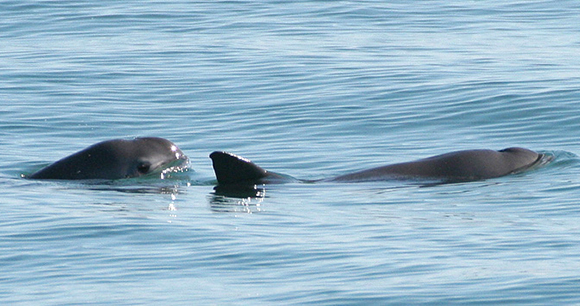
Conservation Groups Request Enforcement Action Against Mexico
Washington, DC—Conservation groups petitioned the Commission on Environmental Cooperation (CEC) today to investigate Mexico’s failure to enforce its fishing and trade laws. Mexico’s enforcement failures violate the United States-Mexico-Canada Agreement (USMCA) and if continued will cause the vaquita porpoise to go extinct.
The groups also asked the United States Trade Representative’s Interagency Environment Committee for Monitoring and Enforcement (IECME) to initiate enforcement actions against Mexico under the agreement for the violations.
Under the USCMA, the United States, Mexico, and Canada committed that “no Party shall fail to effectively enforce its environmental laws.” The CEC was established under the agreement to address trilateral environmental concerns and promote the enforcement of environmental law.
The Mexican government has repeatedly failed to enforce its own fishing ban in the vaquita’s habitat in the Upper Gulf of California. In November 2020, observers documented more than 1,100 boats fishing illegally, and in July 2021, Mexico issued new rules that weakened its enforcement of illegal fishing in the vaquita’s core habitat.
“Mexican officials have promised again and again to get illegal gillnets out of the vaquita’s habitat, but they’ve utterly failed to do so,” said Sarah Uhlemann, international program director at the Center for Biological Diversity. “The United States and the whole international community must finally put real pressure on Mexico to act. The Mexican government has a legal and moral obligation to save these little porpoises, and time for real action is running out.”
Only 10 vaquita likely remain on Earth. Vaquita become entangled and die in illegal fishing gear set to catch shrimp and finfish, including the critically endangered totoaba. The totoaba’s swim bladder is illegally traded on the international market for astronomical prices because of its purported medicinal properties.
“This is the most clear-cut case where the US government must make use of the USMCA’s enforcement powers to rein in Mexico,” said DJ Schubert, a wildlife biologist with the Animal Welfare Institute. “For decades, Mexico has broken a string of promises to save the vaquita. Since Mexico is apparently incapable of protecting this species and its habitat, the international community must intervene.”
Today’s petition asks the CEC to investigate and develop a formal “factual record” on Mexico’s failures. The groups also asked the IECME, charged with monitoring compliance with the USMCA, to initiate “consultation” with Mexico. This is the first step in the USMCA’s formal enforcement process and could eventually result in trade sanctions under the trade pact.
“NAFTA and the USMCA have been a disaster for North American workers and the environment,” said Zak Smith, a senior attorney at NRDC. “The times of putting corporate profits before the interests of workers and the environment must end, especially in the context of the climate and biodiversity crises. The United States should use the tools it has under the USMCA to ensure Mexico meets its obligations under the agreement to enforce its laws and keep the vaquita from going extinct.”
- Marjorie Fishman, Animal Welfare Institute
[email protected], (202) 446-2128 - Sarah Uhlemann, Center for Biological Diversity
[email protected], (206) 327-2344 - Kari Birdseye, NRDC
[email protected], (415) 350-7562 - Alejandro Olivera, Center for Biological Diversity
[email protected], +52 612 104 0604 (en español)
The Animal Welfare Institute (awionline.org) is a nonprofit charitable organization founded in 1951 and dedicated to reducing animal suffering caused by people. AWI engages policymakers, scientists, industry, and the public to achieve better treatment of animals everywhere—in the laboratory, on the farm, in commerce, at home, and in the wild. Follow us on Facebook, Twitter, and Instagram for updates and other important animal protection news.
The Center for Biological Diversity is a national, nonprofit conservation organization with more than 1.7 million members and online activists dedicated to the protection of endangered species and wild places.
EIA is an international campaigning organization committed to investigating and exposing environmental crime and campaigning to protect endangered species and the natural world. EIA has worked to increase protections for whales, dolphins, and porpoises for more than 30 years.
The Natural Resources Defense Council (NRDC) is an international nonprofit environmental organization with more than 3 million members and online activists. Since 1970, our lawyers, scientists, and other environmental specialists have worked to protect the world's natural resources, public health, and the environment. NRDC has offices in New York City, Washington, D.C., Los Angeles, San Francisco, Chicago, Bozeman, MT, and Beijing. Visit us at nrdc.org and follow us on Twitter @NRDC.